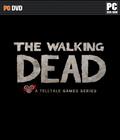I'm one of the guys who, a few years ago, would begin a lot of adventure game reviews by talking about how the genre was on its way out. Of course, we were all overlooking interactive fiction entirely, and even back then, a new adventure game — Syberia, Runaway 2, some poorly translated Russian thing — would pop up every so often just to keep it alive. After the fifth or sixth time you start a review with a paragraph about how the adventure game is dead and this title might be its epitaph, two things become obvious: one, you're not very self-aware, and two, you should really stop recycling your lead paragraph.
It's probably more accurate to say that the adventure game has evolved into a sort of interactive novel, which lives or dies on the strength of its narrative or characters. I think something's been lost in the transition, but I grew up on the King's Quest games, so it's possible those left me with some kind of brain damage. I actually miss carrying around two dozen random items, any one of which would not be used in any kind of obvious way, and a couple of which can kill me.
I'm mostly saying all this to put my biases on the table. There's a lot I like about The Walking Dead, but it's a modern adventure game, and I think the current state of the genre is flawed. This doesn't reflect on The Walking Dead itself, which is a great example of what's potentially good about modern adventure games, but there's a lot I'd change.
I'd even go so far as to say that the game provides a more satisfying narrative than the comic book. Robert Kirkman has just released the 100th issue of "The Walking Dead" as I write this, and at this point, it really is an ongoing exercise in how far the characters can be pushed before they put guns in their mouths. The game, conversely, is populated by smarter characters from the very start, who are at least more understandable when they aren't more likeable.
The second episode, Starved for Help, starts three months after the first, when the surviving characters from the first episode have just run out of food. They make contact with another group of survivors at a nearby dairy farm, who're looking to swap food for gas, and the situation rapidly degenerates from there. The plot's not quite as unpredictable as I'd like, mostly due to how a major antagonist's character design makes him look like he's about to strap a woman to some railroad tracks, but it's a short and intense ride nonetheless.
The smart thing about The Walking Dead is that it provides a lot of legitimately interesting choices. There are a lot of binary decisions here and there, where you decide who lives and who dies, and several major decisions have almost the same outcome regardless of what you pick, but that doesn't matter in the moment. You're managing your character's personality and his relationships to the other survivors, which determine who you can rely on and who you may end up fighting with. Episode 2 has a couple of real nail-biters, including the infamous sequence right at the start, where you find a guy who's stumbled into a bear trap, and it really doesn't feel like there's any "right" decision.
I think the genre in general could benefit from a little less talking and a lot more puzzles, though. Most of the actual gameplay in The Walking Dead involves conversations, point-and-click "pixel hunting" where you search for something you can actually interact with, and the occasional Quick Time Event. There are some really clever set pieces, but at this point, the inventory management seems like an artifact of the genre rather than a major feature. At best, you'll have four items to choose from, and it'll be really obvious what you have to do with them, even if the game didn't pop up a relevant item as an option for any interactive object in the environment. It feels a lot like hand-holding, particularly after the hotel parking lot sequence in the previous episode.
Then again, as I said, I'm coming at this from a different perspective. I'm sure that it'd be possible to make a zombie game where you have to figure out how to survive using a pocketful of random junk, with no hints from the environment and minimal interaction with other characters, and I'm just as sure that it would sell three copies and leave its developer a smoking hole in the ground.
For the rest of it, though, The Walking Dead: Episode 2 - Starved for Help is an intense and often gory ride, and in a period of time when moral choice systems in games come down to a question of "living saint" versus "petty jackass," the moral choices you have to make in this game are actually pretty refreshing. I'm often really annoyed by this kind of adventure game, but The Walking Dead is an exception.
Score: 8.0/10
More articles about The Walking Dead











 The Walking Dead is an epic drama where personal trials are magnified against a backdrop of moment-to-moment survival. As a zombie epidemic of apocalyptic proportions sweeps the globe, the dead are rising to feed on the living.
The Walking Dead is an epic drama where personal trials are magnified against a backdrop of moment-to-moment survival. As a zombie epidemic of apocalyptic proportions sweeps the globe, the dead are rising to feed on the living.





